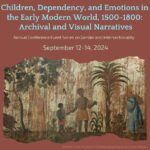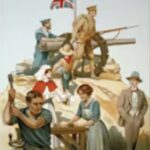Yo-Ling Chen (Independent Scholar) and Ela Przybyło (Illinois State Univ.) (Web)
Proposals by: 30.09.2024
In the past two decades, asexuality studies scholarship has grown exponentially, reflecting the rise of asexual and aromantic communities around the world. The majority of scholarship in asexuality studies, however, remains either on Anglophone ace communities, primarily in North America, or situated in Western sexual epistemologies. This edited volume seeks to explore a broader array of global asexualities and aromanticisms by gathering together scholarship on ace and aro identities, resonances, and their translations both outside of Western contexts and beyond Western colonial knowledge frames.
Acknowledging that modern Western notions of asexual and aromantic identities do not account for all nonsexual and nonromantic experiences across time and space, the editors intentionally make use of a porous and plural definition of ‘asexualities’ and ‘aromanticisms’ in framing this edited volume. In their understanding, asexualities and aromanticisms encompass identities, orientations, and sites of knowledge production and life invention that challenge compulsory sexuality and amatonormativity, or the universalized assumptions that equate sexual activity and romantic love with paramount human value. With this definition in mind, the editors seek to encompass both manifestations of asexual/aromantic identities as they occur in non-Western contexts and nonsexual/nonromantic explorations that exceed modern Western notions of sexual and romantic orientation. Likewise, they are also interested in work that draws on antiracist, Indigenous, decolonial, and non-Western bodies of knowledge to explore the intersections of compulsory sexuality and amatonormativity with race, Indigeneity, citizenship, location, geopolitics, coloniality, class, caste, gender, ability, language, and nation.
The editors envision a dynamic collection of academic research articles, non-academic essays, interviews, and English translations of the many manifesto/a/xs that have been written around ace/aro politics outside of the Anglophone world, as well as asexuality studies scholarship that is happening in languages other than English. They welcome submissions of abstracts from: activists, artists, writers, translators, and scholars at all stages of their careers who have an interest in challenging normative structures of sexuality and romance and have … read more (Web).
Source: Qstudy-l mailing list

 Bonn Center for Dependency & Slavery Studies (BCDSS); Joseph Biggerstaff, Susan Broomhall, Kristie Flannery, Claudia Jarzebowski, Jessica O’Leary, and Lisa Phongsavath
Bonn Center for Dependency & Slavery Studies (BCDSS); Joseph Biggerstaff, Susan Broomhall, Kristie Flannery, Claudia Jarzebowski, Jessica O’Leary, and Lisa Phongsavath  Home Front Studies
Home Front Studies